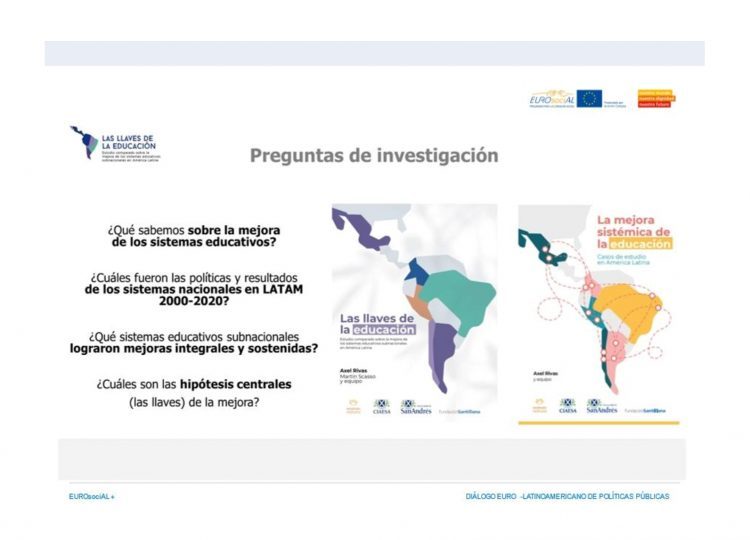The Social Policies area of the EUROsociAL+ Programme is helping the National Administration of Public Education-ANEP of Uruguay to design a new curriculum for primary and secondary schools.

A virtual discussion was held on curricular change in Latin America on 10 February. Coordinated by expert Axel Rivas, the activity is part of the curricular change process being carried out by ANEP Uruguay with support from EUROsociAL+.
Rivas presented the results of his research “ The keys to education: Comparative study on the institutionalisation of evaluation in Europe and Latin America”. Patricia Salas, former Minister of Education of Peru, Patricia Vázquez del Mercado, former Secretary of Education of Puebla and former counsellor of the INEE of Mexico, and Mauricio Holanda, former Secretary of Education of Ceará, Brazil, presented experiences of systemic improvement processes in their respective territories. The final part of the discussion dealt with an extensive dialogue between Axel Rivas and authorities and teams from ANEP and the Ministry of Education of Uruguay, focused on identifying elements of the processes presented that might be of use to the country.
This workshop is part of the support that the EUROsociAL+ Programme is providing to the country in its goal of comprehensive curricular transformation (Strategic Guideline 3 of the Uruguayan Education Development Plan). Specifically, to devise a proposal for curricular change towards an inclusive, competency-based study plan.
The sharing of good practices in Latin America is complemented by two other workshops that will be held in March and that will feature leading experts who participated in the educational reform in Spain: Cesar Coll (focused on ‘Competences and content’) and Elena Martin (entitled ‘Teach to learn’). Both workshops are part of the cycle: “Competency-oriented curriculum: focus on learning and its relationship with content” that focuses on learning, useful knowledge and the relationship between skills and content.
This will enable the dialogue and experiences shared from Latin America and Europe to help finalise the design process of the new curricular framework that will be put into practice in 2023 in Uruguay.



